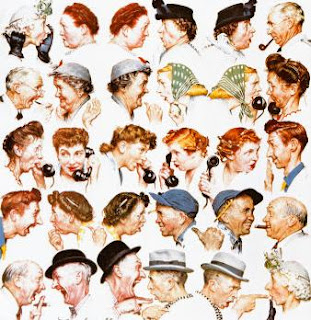Joseph and Charles as Monsters in Sheridan's "The School for Scandal."

Strictures on The School for Scandal (1777) from The London Magazine (April 1783), pp. 169-172. A Play composed by Richard Brinsley Sheridan. Charles , to whom the affections of the audience are chiefly conciliated, is a young profligate spark of fashion, without œconomy, temperance, or consideration; who having spent his all, minds nothing but how to get more, without the vulgar means of industry; who cares not how much he squanders of what is not his own, provided he can be a rogue in an honest way, or possess another's property without risquing his neck; in short, he is one of thole modern fine gentlemen, who devote their whole substance, time, and talents, alternately, to wine, gambling, and gallantry. Surely a character of this kind, endowed with so many agreeable qualities as meet in him, is the very worst spectacle our youth can behold. From such polluted and enchanting scenes the increasing profligacy of the nation mull originate. What can be a grosser pros...




